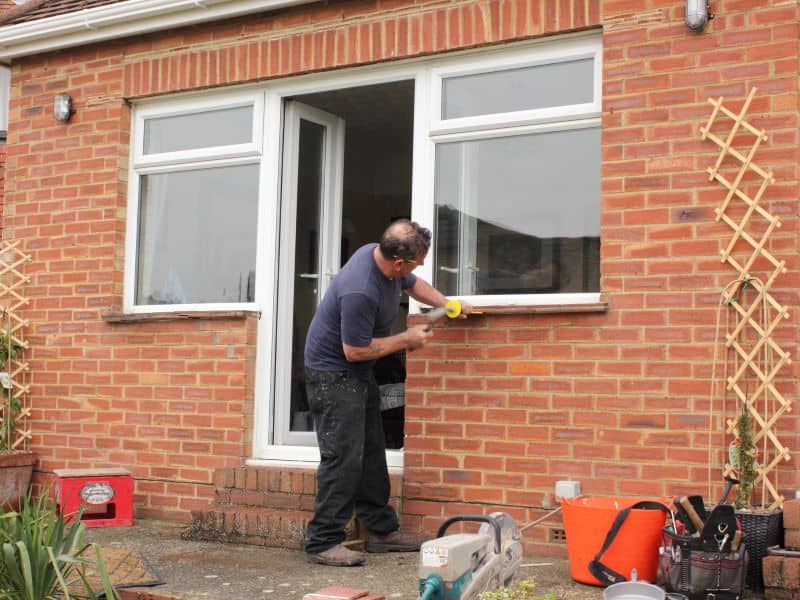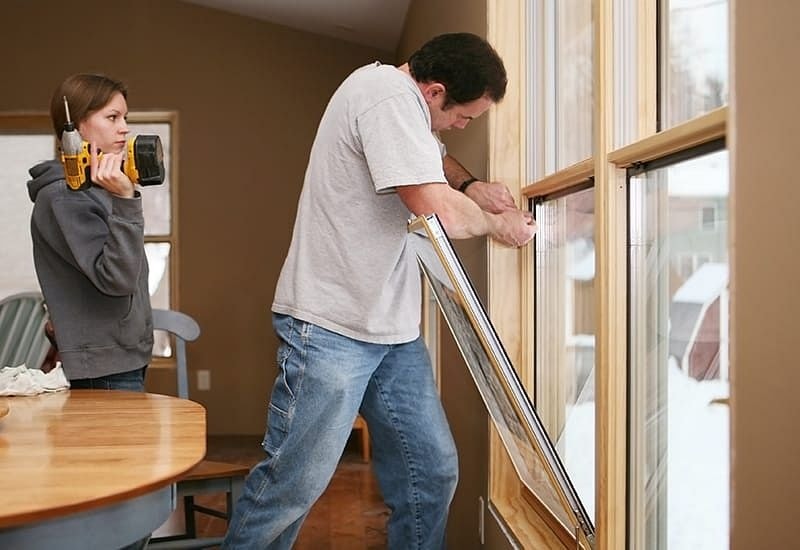Katy Window Replacement Professionals for Superior Service
Katy Window Replacement Professionals for Superior Service
Blog Article
Upgrade Your Home With Energy-Efficient Home Window Replacements
In the world of home renovation, the choice to update to energy-efficient window replacements can substantially affect both the functionality and aesthetic appeals of a home (Spring window replacement). As home owners seek ways to boost the effectiveness and sustainability of their space, the option of windows plays a critical function in accomplishing these objectives. Beyond the surface area degree of simple visual appeals, energy-efficient home windows use a wide range of advantages that go beyond plain visual charm. With a cautious selection procedure that thinks about different factors, from glass kinds to installation techniques, starting this home upgrade trip might prove to be a transformative venture.
Benefits of Energy-Efficient Windows

The installation of energy-efficient home windows gives considerable cost savings on utility bills while enhancing ecological sustainability. Energy-efficient windows are developed to reduce warmth loss and gain, reducing the need for heating and cooling down systems to function overtime. By successfully protecting the home, these home windows help keep a comfortable interior temperature year-round, causing reduced energy usage and decreased energy costs. Additionally, energy-efficient home windows can aid regulate moisture levels within the home, reducing the danger of mold and mildew and mold growth.
Beyond the economic advantages, energy-efficient windows contribute to environmental sustainability by decreasing carbon emissions related to energy production. By reducing energy use, these home windows help mitigate the environmental impact of lighting, air conditioning, and heating household spaces. This decrease in power consumption plays an important role in combating environment modification and advertising a greener future for generations to come. On the whole, buying energy-efficient windows not just improves the comfort and efficiency of a home yet also aligns with environmentally mindful methods.
Sorts Of Energy-Efficient Glass
Numerous innovative kinds of energy-efficient glass deal distinct buildings that provide to different needs and preferences in boosting the sustainability and efficiency of buildings. Low-emissivity (Low-E) glass is a preferred alternative designed to minimize the amount of ultraviolet and infrared light that can pass via the glass, therefore lowering warmth transfer. This kind of glass assists maintain a constant indoor temperature level, minimizing the requirement for heating or cooling systems, and inevitably reducing power costs. Another cutting-edge choice is spectrally selective glass, which enables noticeable light to travel through while obstructing specific kinds of infrared radiation. This helps in preserving a comfy indoor setting while decreasing warm gain. Triple-pane glass, including 3 layers of glass with protecting gas between them, gives improved thermal insulation, making it highly energy-efficient. Additionally, self-cleaning glass with an unique covering that breaks down and loosens dust when revealed to sunshine can reduce upkeep demands and keep windows looking tidy. Each kind of energy-efficient glass offers distinct benefits, enabling home owners to select one of the most ideal alternative based on their specific requirements and objectives.
Variables to Consider When Choosing
When contemplating energy-efficient window substitutes, it is vital to thoroughly examine particular variables that straighten with your sustainability objectives and desired power cost savings. One important variable to take into consideration is the window's power efficiency ratings, such as the U-factor and Solar Heat Gain Coefficient (SHGC) The U-factor measures exactly how well the window insulates, with lower numbers showing far better insulation, while the SHGC suggests the home window's capability to block warmth from sunshine. Furthermore, the window framework material plays a significant function in power efficiency. Materials like fiberglass, plastic, or timber with thermal breaks are exceptional options for lowering heat transfer. Another crucial factor to consider is the window design and orientation concerning sunshine direct exposure. Picking the right home window style and strategically putting them can optimize natural light while reducing warm gain or loss. Last but not least, installation high quality is vital to making sure the home windows do as planned. Appropriate installment assists avoid air leak, guaranteeing ideal power performance. By meticulously evaluating these aspects, you can select energy-efficient windows that improve convenience, minimize energy prices, and benefit the atmosphere.
Installment and Maintenance Tips

Routine upkeep is key to maintaining the efficiency of your energy-efficient home windows. Examine the weather-stripping and seals for any splits or voids and replace them if needed to preserve the home windows' power effectiveness. Cypress window replacement.
Furthermore, lube moving components such as locks and joints to make certain smooth procedure. By complying with these installment and upkeep pointers, you can enhance the energy effectiveness of your home and prolong the life expectancy of your energy-efficient home windows.
Cost-Benefit Analysis of Updating

Energy-efficient windows are designed to reduce warmth transfer, minimizing the requirement for heating and cooling systems to function overtime. This can lead to considerable savings on energy costs, especially in areas with severe temperatures. In addition, energy-efficient windows can enhance the general cost to replace all windows in house value of your home, making it much more appealing to possible customers if you choose to he has a good point offer in the future.
When determining the cost-benefit evaluation, consider the prospective financial savings on energy bills, any type of available incentives or discounts, and the lifespan of the windows. While the first price may be greater, the long-term savings and benefits of energy-efficient home windows make them a smart investment for property owners seeking to enhance their residential or commercial property's energy efficiency and worth.

Verdict
In conclusion, updating to energy-efficient window substitutes offers numerous advantages such as decreased power consumption, enhanced convenience, and expense financial savings. By picking the appropriate kind of energy-efficient glass and taking into consideration aspects like structure product and installation, house owners can optimize the performance of their home windows. Normal upkeep and proper installation are important for long-term performance. Overall, the cost-benefit evaluation of upgrading to energy-efficient windows shows that the first investment can result in considerable financial savings in the future.
When considering energy-efficient home window replacements, it is critical to thoroughly analyze particular factors that align with your sustainability objectives and preferred energy savings. The U-factor steps how well the home window shields, with lower numbers indicating better insulation, while the SHGC indicates the window's capacity to block warm from sunshine. By very carefully reviewing these aspects, you can select energy-efficient home windows that enhance convenience, minimize energy costs, and benefit the environment.
While energy-efficient home windows may have a higher upfront cost compared to conventional windows, the long-lasting advantages commonly outweigh the preliminary investment.In final thought, upgrading to energy-efficient window substitutes uses numerous benefits such as decreased power consumption, enhanced comfort, and expense financial savings.
Report this page